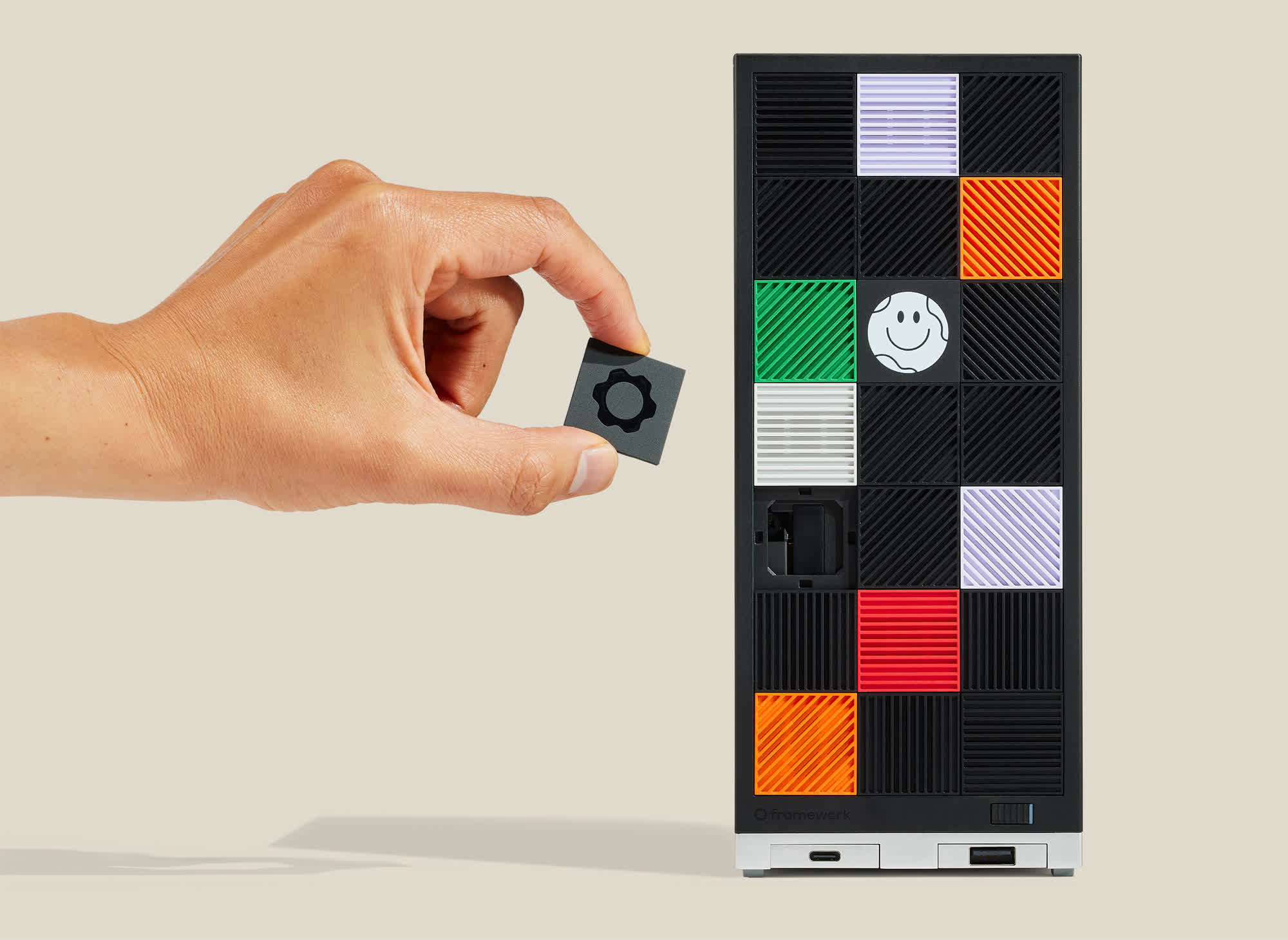In a nutshell: Framework has introduced its first desktop PC, a mini-ITX system running AMD's latest Ryzen AI Max family of processors. The aptly named Framework Desktop ships with your choice of an AMD Ryzen AI Max 385 (eight core / 16 thread) or AI Max+ 395 (16 core / 32 thread), Radeon 8060S graphics, and up to 128 GB of LPDDR5x memory.

Notably, the components are soldered into place – not exactly what you'd expect from a company that champions the right to repair movement. In fact, a standard desktop PC is far more flexible with regard to CPU, GPU, and memory upgrades.
Framework partially addresses this shortcoming, noting that to enable the 256 GB/s memory bandwidth that Ryzen AI Max delivers, they had to solder the LPDDR5x into place.

"We spent months working with AMD to explore ways around this but ultimately determined that it wasn't technically feasible to land modular memory at high throughput with the 256-bit memory bus," the company said.
Other features and peripherals afford more choice. For example, the Mini-ITX motherboard includes a broad set of rear I/O ports and can be installed in any compatible chassis should you not want to source one from Framework. Users are also free to bring their own fans to the table should they prefer not to use the ones Framework co-developed with Cooler Master and Noctua.
Framework said it'll be publishing step-by-step installation guides and videos to help newcomers get up and running.
The Framework Desktop is available is available to pre-order now. Pricing starts at $1,099 for a machine equipped with a Ryzen AI Max 385 and 32 GB of memory, and scales up to $1,999 for the top-end model packing a Ryzen AI Max+ 395 and 128 GB of memory.

A $100 deposit can get your name on the list. As DIY Editions, they come without storage and an operating – you can either supply your own or add them on during checkout for an additional fee. It's also possible to pre-order the CPU, motherboard, and memory combo as a standalone unit with prices starting at $799.
Systems ordered now are expected to ship in the third quarter of 2025.
Framework's first-ever desktop PC packs AMD's Ryzen AI Max, priced from $1,099